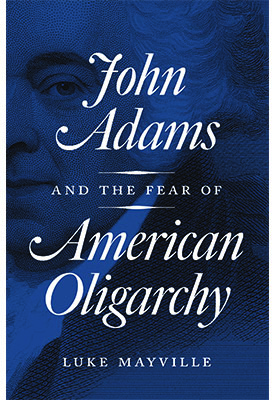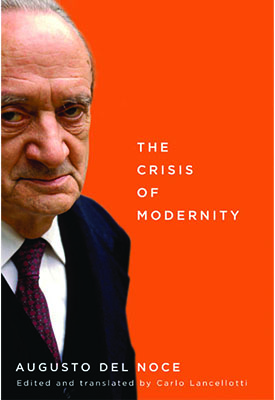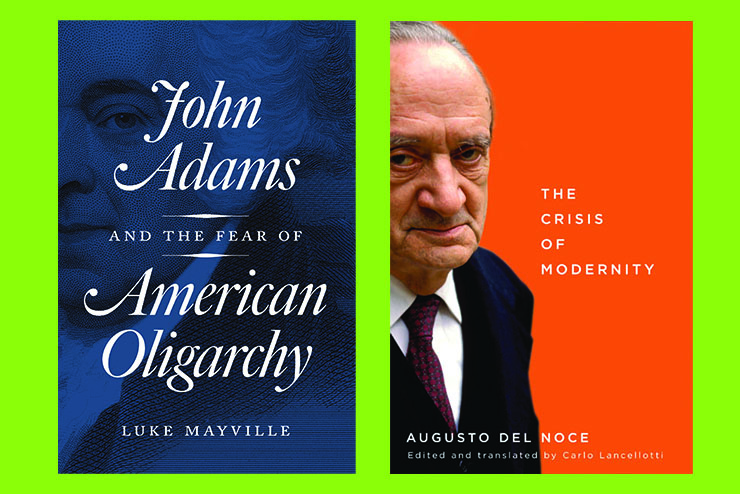
Even Russell Kirk in The Conservative Mind misidentified Founding Father John Adams as an apologist for class privilege. A closer reading of Adams’ works shows he feared unchecked aristocrats and refused to stand by as “the few” threatened to reverse the nascent American Republic’s successful escape from tyranny. In an 1813 letter to his political rival Thomas Jefferson, Adams scorned aristocrats as “the most difficult animals to manage of any thing in the whole theory and practice of government.”
Luke Mayville’s 2016 monograph has moved our historical understanding of Adams’ stance much closer to the truth. Yet it was largely overlooked by book reviewers, who perhaps avoided reflecting on Adams’ cynical conclusions lest they undermine the timeless verities keeping Columbia Journalism School grads ensconced in their hereditary sinecures.
Mayville’s two-pronged synthesis of both Adams’ practical political philosophy and Scottish Enlightenment moral psychology explains why our second president dreaded America’s burgeoning, contemptible elite. Adams foresaw the degeneration of American aristocracy into a boorish oligarchy where family name (Bush, Clinton, Kardashian), beauty (Jolie, DiCaprio, Kardashian), and wealth (Bezos, Gates, Kardashian) would easily trump merit (any random Eagle Scout would prove better than those vulgarians). If Jared Kushner’s tenure in office rubbed you the wrong way, this book will help you understand the historical and philosophical foundations of your disgust.
Mayville scoured Adams’ correspondence, along with his Discourses on Davila and Defense of the Constitutions of Government of the United States, for evidence. Adams’ letters to Jefferson were particularly fruitful; there he argued against Jefferson’s notion that an educated populace would ever have the requisite judgment to distinguish “the rich and wellborn from the meritorious.” Recounting the works of Adam Smith, Adams predicted that “wealth would glitter with the same luster as royalty” in the “commercial republics of the future.” Jared Kushner hobnobs with actual Saudi royalty nowadays; QED.
Mayville ends with a wistful call for humility, reminding us that Americans are not “exceptionally immune” to aristocratic decay. Let Adams have the final word: “There is no special providence for Americans, and their nature is the same with that of others.”
—John Greenville

This collection of the writings of the Italian Catholic philosopher Augusto Del Noce (1910–1989) gives his analysis of 20th-century Western political and intellectual life and how it led to our present post-’60s situation. His observations are rooted in the Italian situation, but their cogency, and their applicability to the problems now afflicting the West, mean they add a helpful perspective on what has happened in America.
In Del Noce’s analysis, philosophy and politics are inseparable, since how men act socially depends on how they understand themselves and their world. Before World War II, he tells us, Italian intellectuals thought modern history meant immanentization. The transcendent Christian God was disappearing, but what was valuable in Christianity was being preserved in the form of progressive tendencies in culture and social life. The rise of political violence that led to the catastrophe of the war, together with the inability of intellectuals to mount any effective opposition, destroyed that vision. Since intellectuals had considered their outlook the mature outcome of long centuries of culture, they concluded that European and Christian tradition had failed.
The result was the intellectuals’ turn toward Marxism, which combined continued belief in progressive historical development with a wholly materialist understanding of the world, and which radically rejected Western culture, ideals, and traditions. Abandoning the Western heritage made it impossible for intellectuals to use current ideals to form an image of the better world supposedly to come. Marxism therefore emphasized action, but without assigning it a goal other than the destruction of the existing society to hasten the advent of an unforeseeable future.
Naturally, the whole thing fell apart. Quite early, Del Noce writes, the activist aspects of Marxist thought gave rise to Italian Fascism and then to Stalinism and Nazism. And the materialist and therefore scientistic and technocratic aspects of Marxism, which lasted longer because they avoided immediate violent irrationality, gave us post-’60s Western society.
Del Noce presents that society, which is based on scientism, eroticism, and a secularized theology that enlists the Church in its support, as intrinsically totalitarian, because it doesn’t allow people to question it. It is also unchangeable: in a nihilistic technocracy there is lots of activity but nothing significant can happen. The development of history in this direction has led to the abandonment of divine transcendence and classical metaphysics.
What bad thinking has done, better thinking can still repair. That vision, and his penetrating analysis of current society, is Del Noce’s enduring value for us today.
—James Kalb

Leave a Reply